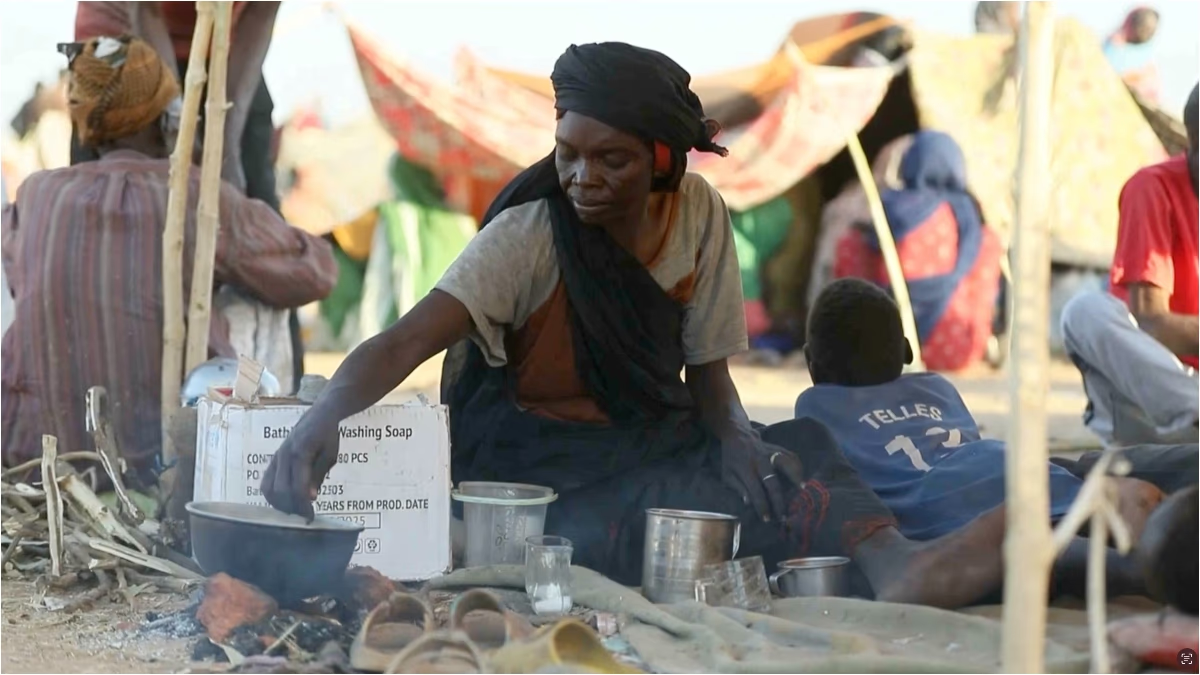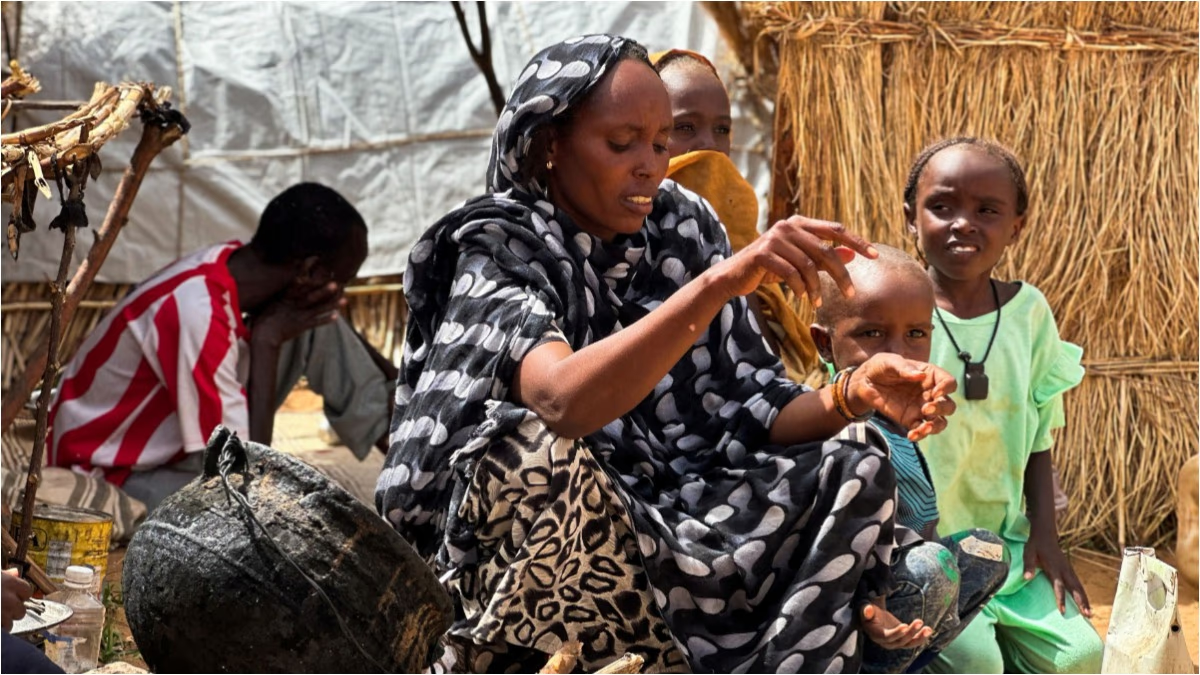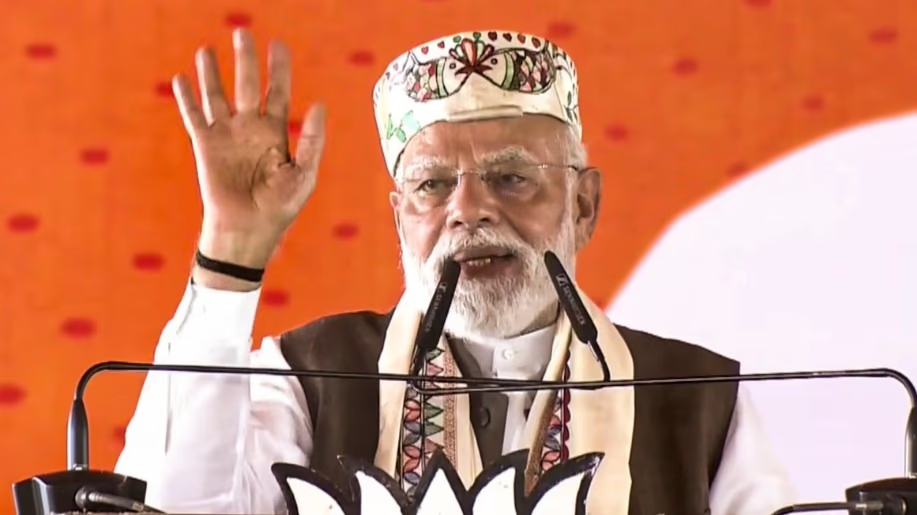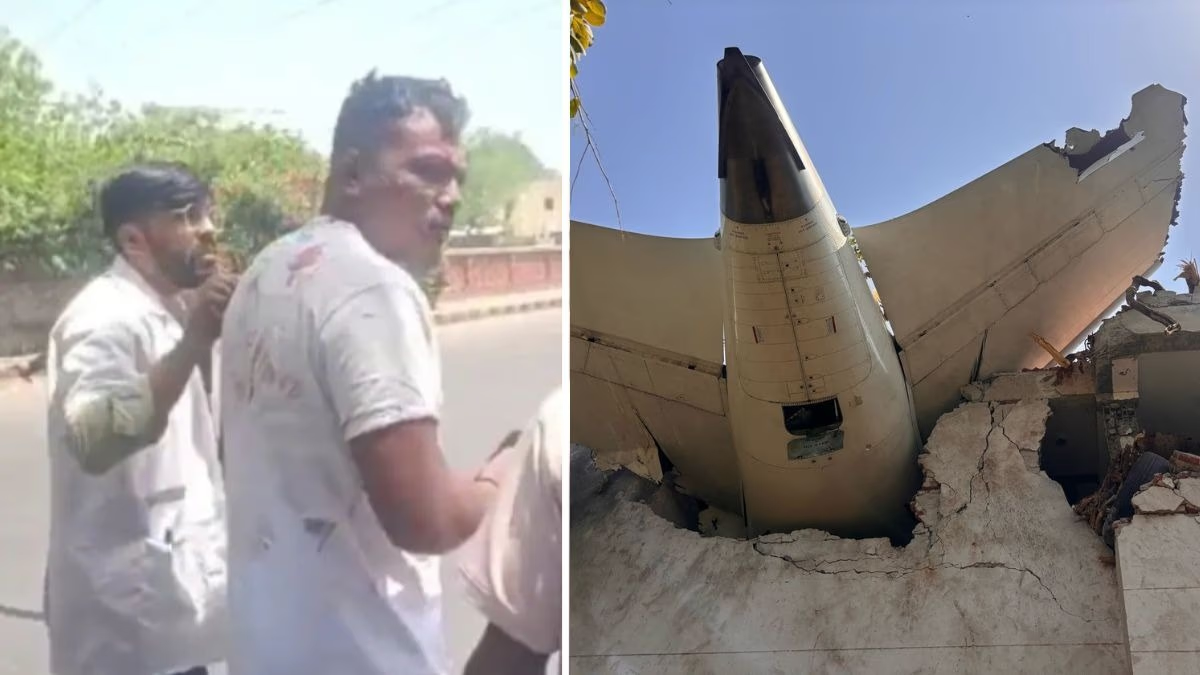The brutal civil war in Sudan has now driven the population to the brink of starvation, forcing people to consume animal feed and hides to survive. The International Hunger Monitoring Agency (IPC) confirmed on Monday that two major cities in Sudan, Al-Fasher and Kadugli, are now officially in a 'famine' situation.
Hope Crashed After 18 Months of Siege
The city of Al-Fasher was under military siege for about 18 months, during which time all food supply was completely cut off. To fill their stomachs, people resorted to eating animal feed, dry grass, and even animal hides. Local residents reported that when community kitchens were set up in some areas, they were also targeted by drone strikes. When people fled to nearby Tawilla, nearly all the children were found in a malnourished state. An MSF official noted that the adults who came were so emaciated and weak that they were barely recognizable.

Source: aajtak
Seeing the condition of people leaving Al-Fasher, the whole concept of humanity feels shaken. An official mentioned that this population was deprived of basic services and nutrition for months. No medicines or antibiotics could reach them, and there were no health services available. Now, as people are emerging from there, their bodies bear deep marks of hunger and disease.
Destruction and Violence Accompany Hunger
The International Criminal Court (ICC) has also stated that investigations into mass killings and rape cases have begun following the fall of Al-Fasher. The head of the Red Cross remarked that history is repeating itself in Darfur. According to the IPC's September 2025 report, areas like Tawilla, Mellit, and Tawisha are also facing famine threats. The report indicates that currently, about 21.2 million people, or approximately 45% of Sudan's total population, are experiencing serious food insecurity.
The Impact of War, Hunger, and Politics
The war between the RSF and government forces has been ongoing for two and a half years in Sudan. This conflict has not only displaced millions but has also intensified ethnic violence and inflation in the Darfur and Kordofan regions, making life even harder for the people. Meanwhile, cuts in global assistance and governmental hurdles have further constrained the aid provided by the United Nations and other humanitarian organizations.




